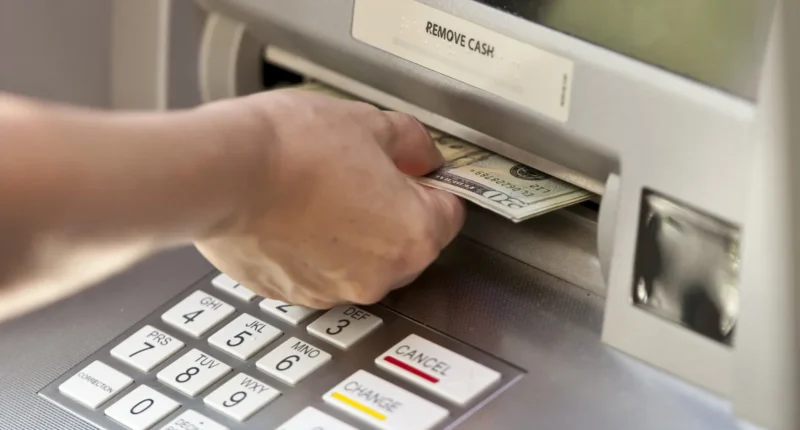The Consumer Financial Protection Bureau on Wednesday said it is proposing a rule that would curb excessive overdraft fees charged to customers of large banks and credit unions, potentially saving consumers as much as $3.5 billion a year.
The rule would only apply to banks and credit unions with at least $10 billion in assets, which account for the largest share of deposit account customers in the United States.
Too often, the consumer watchdog agency has noted, bank customers are surprised by overdraft fees and those who can least afford them are charged the most frequently.
“Today, we are proposing rules to close a longstanding loophole that allowed many large banks to transform overdraft into a massive junk fee harvesting machine,” said CFPB director Rohit Chopra.
CFPB has found that customers “are typically charged $35 for an overdraft loan, even though the majority of consumers’ debit card overdrafts are for less than $26, and are repaid within three days.”
What’s more, the agency estimates that roughly 23 million households a year pay overdraft fees and that the proposed rule could save each household $150 a year.
What would change

An overdraft fee is charged when the bank or credit union covers a deposit account holder’s transaction (e.g., payment, withdrawal, debit or transfer) even though there is not enough money in that person’s account.
The CFPB asserts that the overdraft coverage is in essence a loan to the customer and as such should be subject to the Truth in Lending Act much the way credit cards are. The Truth in Lending Act, created when people relied on paper checks and not instantaneous payments and debits, requires lenders to clearly disclose to the borrower how much a loan — or credit — will cost them. But overdraft protection was treated as exempt from those disclosures.
“In the 1990s and early 2000s, with the rise of debit cards, institutions began raising fees and using the exemption to churn high volumes of overdraft loans on debit card transactions. Annual overdraft fee revenue in 2019 was an estimated $12.6 billion,” CFPB said.
Today, big banks have made many modifications to their overdraft practices, effectively lowering their overdraft revenue to roughly $9 billion a year.
The CFPB rule would lower that amount further by requiring big banks and credit unions to be as forthcoming about the terms of extending an overdraft loan as they are for other lending products.
One option for financial institutions subject to the rule would be to offer customers overdraft protection as a line of credit tied to their checking account or debit card. Those lines of credit would charge a competitive interest rate.
“Very large financial institutions would still be able to offer profitable overdraft loans, as long as they comply with longstanding consumer protections on loans. For example, this would require them to disclose interest rates and fees, just as they would if they offered a credit card or other loan,” the CFPB said.

Or if a large bank wished to remain exempt from the Truth in Lending Act for its overdraft services, it could charge a flat fee for an overdraft payment. The fee would be equal to either to a benchmark amount that the CFPB sets (currently the agency is weighing amounts between $3 and $14) or the bank could calculate a fee in line with its costs for providing overdraft protection.
The proposed rule is open for public comment until April 1. After that, the CFPB will consider those comments, decide if the proposal needs to be amended and whether to issue a final rule. If it does, that rule likely would not go into effect until October 2025.
The CFPB’s latest move is part of a larger effort by the Biden Administration to cut down on “junk fees” and bring more transparency to charges for everything from airline tickets, live events, rentals, hotels and banking services to retirement advice and credit cards.
In a statement Wednesday, President Joe Biden called the new proposed rule “just one part of my Administration’s broader plan to lower costs for hardworking families,” calling predatory overdraft fees “exploitation.”
“Today’s proposal would cut the average overdraft fee by more than half, saving the typical American family that pays these fees $150 a year,” the president wrote. “That would add up to save families $3.5 billion every year. Unfortunately, some Republicans in Congress continue to defend these exploitative fees.”





